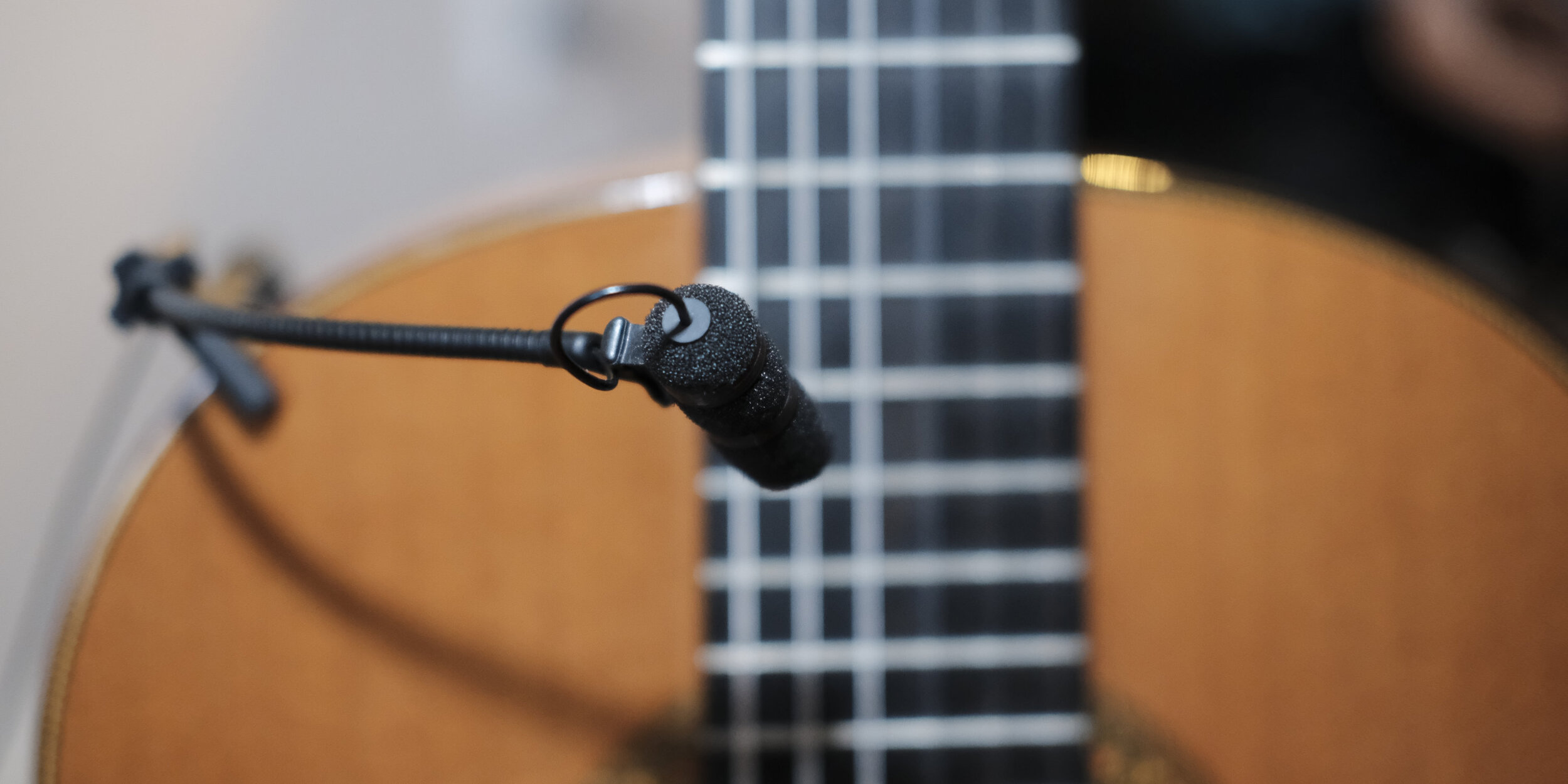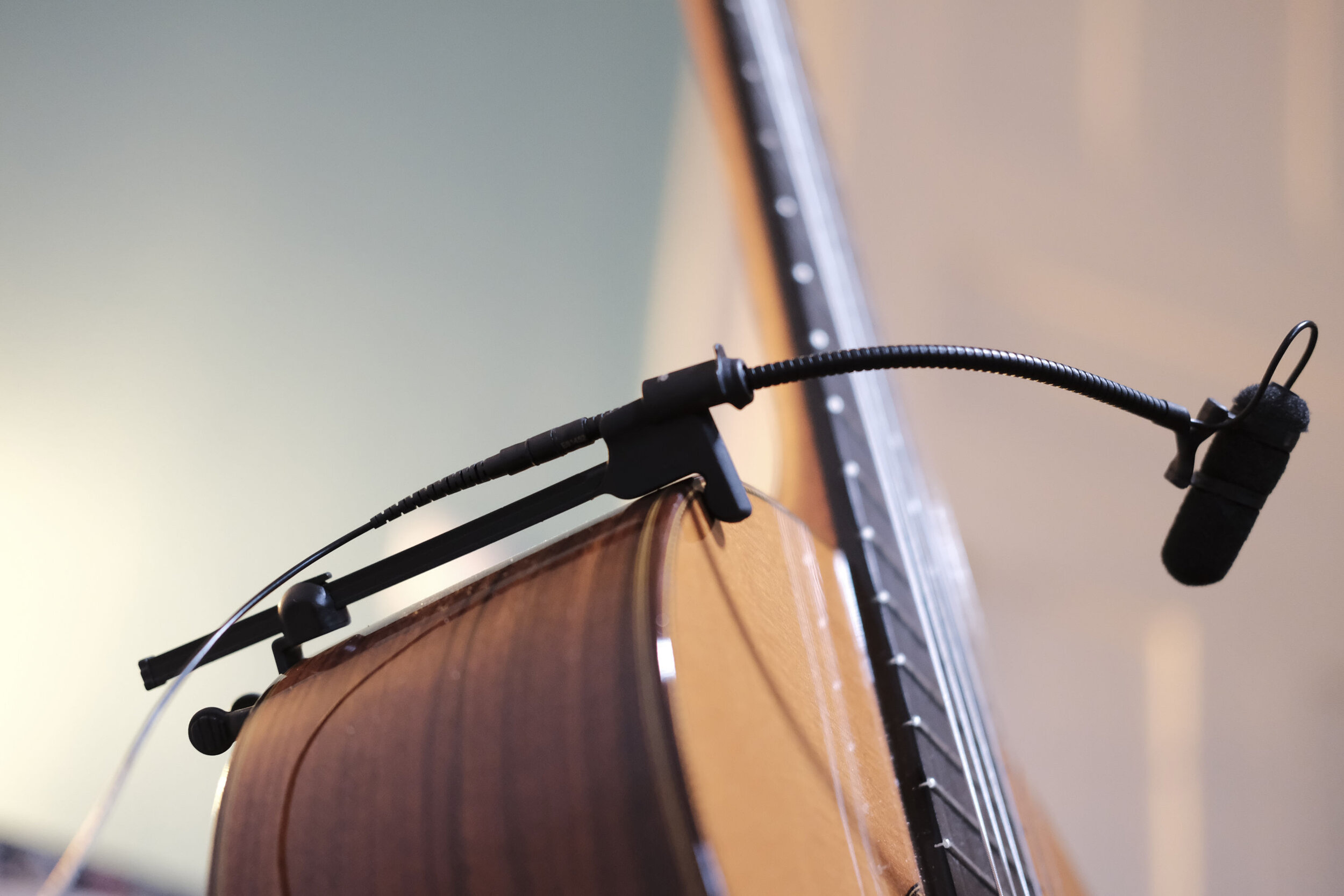DPA d:vote 4099g Microphone Review
Studio sound for the stage
Danish Pro Audio is acclaimed for manufacturing high-end condenser microphones for acoustic and classical music. The DPA d:vote 4099 is a super-cardioid condenser microphone aimed to bring a high-quality capture on the stage.
Good things come in small packages
The microphone with its accessories is packed in a neat hard-shell canvas case that is pretty light but offers enough protection, making it excellent for the life on the road. Included is a 1,8m MicroDot cable, an XLR adapter and an instrument mount. I have the 4099g which comes with the guitar mount, DPA offers a plethora of options to suit any instrument.
A 140mm gooseneck holds the miniature 4099 capsule and allows for satisfactory positioning. DPA offers a 180mm extension gooseneck, for even more precise placement and the ability to move the microphone further away from the instrument. A brilliant add-on for the studio or a relatively quiet stage, as the extra distance allows the microphone to capture more of the instrument's surface.
The condenser element is covered by a foam windscreen. Although its very light and compact, it seems super-rugged; except for the detachable cable which gives the impression that is very delicate. Maybe it is my paranoia, but I tend to be extra careful with it when I'm on stage, and you will never catch me out without a backup. Saying that I never had a problem so far.
Hearing the tones
Very easy to mount.
I have used extensively the 4099g on my classical guitar for chamber concerts, usually placing the microphone over the 15th fret and aiming slightly toward the soundhole. Depending on the room, I will adjust further to find the sweet spot. The sound is always balanced and detailed, the DPA delivers a natural and full-bodied representation of my instrument.
With a careful speaker/monitor placement, the DPA can take quite some gain before it starts to feedback. Definitely, enough to compete with a grand piano, string/wind instruments and percussion. The super-cardioid pattern helps in rejecting other instruments and noise, but it's not immune to feedback issues.
A positive aspect of having a microphone mounted on the instrument is that even if I move a bit, the sound always stays the same. Additionally, it unclutters the stage from the various stands.
In the studio, the DPA is not the most qualified performer, the miniature capsule exhibits more self-noise than what is satisfactory. I wouldn't hesitate to use it if I had no other option, but I would choose another mount though for more options in placement.
Flat frequency response on-axis, with a slight presence boost for added clarity.
Essential for all instrumentalists
Liliputian proportions, exceptional sonic quality and excellent craftsmanship, establish the DPA 4099 as a great investment for any instrumentalist. It frees us from the stand prison while rejecting unwanted sounds and still manages to deliver accurate and refined sound.
Soundcheck in Berlin - DPA4099g
Cons
Slightly noisy
The cable is too thin (maybe)
Pros
Balanced and detailed sound
Rejection of unwanted instruments/sounds
Easy to attach-remove
Keeps a constant distance from the instrument on stage





